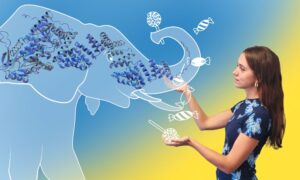
Cute molecules and the scientists who adore them: Sofia Rucli
People & Perspectives Sofia Rucli, postdoc at EMBL Rome, talks about her relationship with the protein OGT, a molecular ‘candy man’ of the cell.
2024
people-perspectives

People & Perspectives Sofia Rucli, postdoc at EMBL Rome, talks about her relationship with the protein OGT, a molecular ‘candy man’ of the cell.
2024
people-perspectives
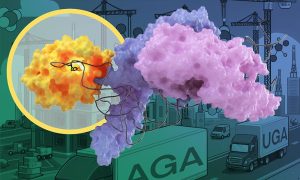
Science & Technology EMBL Grenoble’s Kowalinski Group analysed the structure of an enzyme responsible for modifying tRNA molecules to fine-tune protein production. They discovered that to distinguish almost identical, yet different, tRNA molecules, the enzyme uses help from another enzyme – a type of cooperation…
2024
science-technology

Science & Technology An interdisciplinary collaboration between Hamburg scientists has yielded new insights into the structure and function of a heat-resistant enzyme from an exotic microbe. In this interview, EMBL Hamburg’s Matthias Wilmanns and TUHH’s Garo Antranikian discuss how their collaboration developed and…
2023
sciencescience-technology
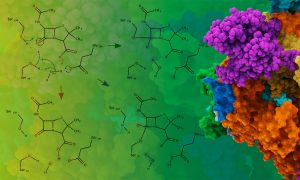
Science & Technology Enzymes constitute a large fraction of genomes – 20% in humans – which makes them a very important part of life. Despite decades of studies and a rich literature dedicated to understanding the reaction mechanisms of enzymes, the rules of enzyme catalysis are still not fully clear. A new…
2023
science-technologytechnology-and-innovation

EMBL-EBI’s MGnify data resource helps researchers find enzymes for novel applications.
2022
announcementsscience

Science & Technology Using metagenomic data to find novel enzymes for plastic degradation and beyond
2021
sciencescience-technology
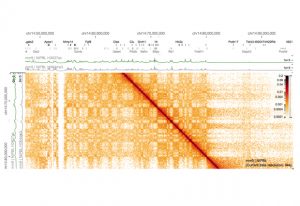
EMBL Announcements EMBL recognises the outstanding work of alumni with the John Kendrew and Lennart Philipson Awards
2018
alumniembl-announcements
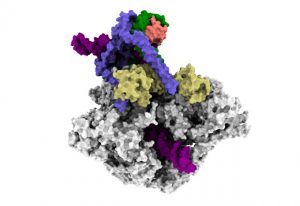
Science & Technology EMBL researchers uncover how a key enzyme that helps cells make new proteins starts its work
2018
sciencescience-technology
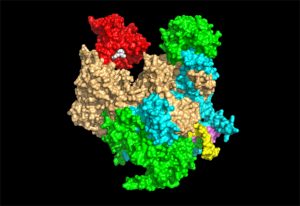
Science & Technology ERC grantee Stephen Cusack shares his vision for the next ten years
2017
sciencescience-technology
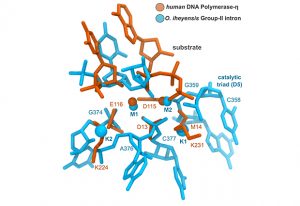
Science & Technology EMBL scientists superimpose structures of two-metal-ion enzymes and reveal new potential drug targets
2017
sciencescience-technology
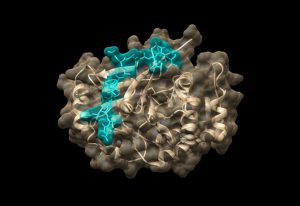
Science & Technology ERC grantee Maja Köhn shares her vision for the next ten years
2017
sciencescience-technology
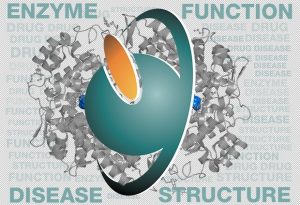
Science & Technology Enzyme Portal makes it easier to explore all enzyme-related data in EMBL-EBI’s public resources.
2015
sciencescience-technology
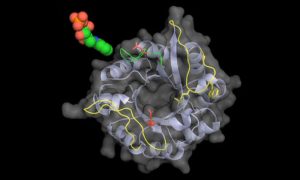
Science & Technology In a paper published online today in PNAS, scientists from the European Molecular Biology Laboratory (EMBL) in Hamburg, Germany, reveal new insights into the workings of enzymes from a group of bacteria including Mycobacterium tuberculosis, the bacterium that causes tuberculosis. The new findings…
2011
sciencescience-technology
Science & Technology Our genome is constantly under attack from things like UV light and toxins, which can damage or even break DNA strands and ultimately lead to cancer and other diseases. Scientists have known for a long time that when DNA is damaged, a key enzyme sets off a cellular ‘alarm bell’ to alert the…
2009
sciencescience-technology
Science & Technology Proteins are the executive agents that carry out all processes in a cell. Their activity is controlled and modified with the help of small chemical tags that can be dynamically added to and removed from the protein. 25 years after its first discovery, researchers at the European Molecular Biology…
2009
sciencescience-technology
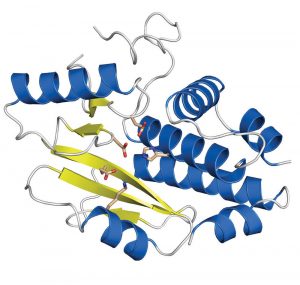
Science & Technology Influenza is and remains a disease to reckon with. Seasonal epidemics around the world kill several hundred thousand people every year. In the light of looming pandemics if bird flu strains develop the ability to infect humans easily, new drugs and vaccines are desperately sought. Researchers at…
2009
sciencescience-technology
Science & Technology Researchers from the European Molecular Biology Laboratory (EMBL) in Heidelberg, Germany, and the EMBL-European Bioinformatics Institute (EMBL-EBI) in Hinxton, UK, have revealed new insights into how sex chromosomes are regulated. A chromatin modifying enzyme helps compensate for the fact that…
2008
sciencescience-technology
Science & Technology A new mechanism to attack hard-to-treat fungal infections has been revealed by scientists from the biotech company Anacor Pharmaceuticals Inc., California, and the European Molecular Biology Laboratory [EMBL] outstation in Grenoble, France. In the current issue of Science they describe…
2007
sciencescience-technology
Science & Technology A human cell contains an enormous 1.8 metres of DNA partitioned into 46 chromosomes. These have to be copied and distributed equally into two daughter cells at every division. Condensation, the shortening of chromosomes, allows the cell to handle such huge amounts of genetic material during cell…
2007
sciencescience-technology
Science & Technology Living organisms need to sense the amount of energy that is available to them and regulate the activity of their genes accordingly. Scientists have made the unexpected finding that a histone protein, which wraps DNA into tight bundles and regulates gene activity, can bind a small molecule produced…
2005
sciencescience-technology
No matching posts found
Looking for past print editions of EMBLetc.? Browse our archive, going back 20 years.
EMBLetc. archive